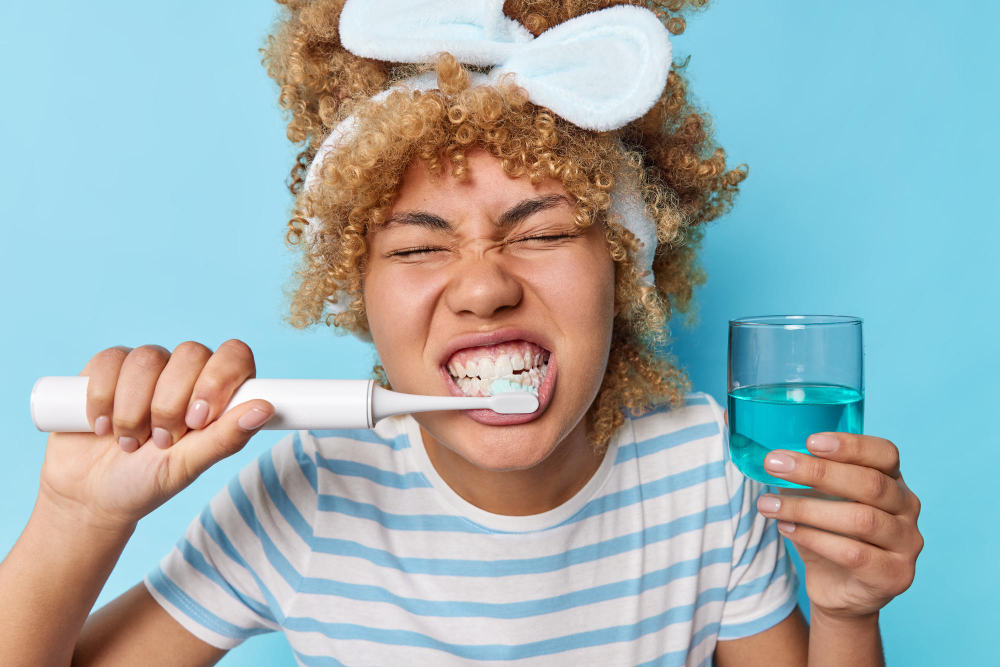
Exploring
the Truth Behind This Common Oral Care Product
When it
comes to oral hygiene, most of us know the basics: brush twice a day, floss
regularly, and visit the dentist at least twice a year. But what about
mouthwash? That brightly colored liquid sitting on your bathroom shelf — is it
truly necessary, or just another marketing gimmick?
Let’s break
it down.
What Is Mouthwash, Really?
Mouthwash,
or oral rinse, is a liquid product used to rinse your mouth, teeth, and gums.
It usually contains antiseptic ingredients to kill bacteria that cause bad
breath, plaque, and gum disease. Some mouthwashes also offer fluoride to help
prevent tooth decay.
There are
two main types:
- Cosmetic mouthwash: Temporarily freshens breath,
but doesn’t treat underlying issues.
- Therapeutic mouthwash: Contains active ingredients
that help reduce plaque, gingivitis, cavities, and bad breath.
What Are the Benefits?
- Freshens Breath
This is the most immediate and noticeable benefit. Many people use mouthwash primarily for that minty-fresh feeling. - Reduces Bacteria
Therapeutic mouthwashes contain antimicrobial agents that can help reduce harmful bacteria in the mouth. - Helps Prevent Gum Disease
By reducing plaque buildup and inflammation, mouthwash can support gum health — especially for those at higher risk. - Reaches Places Your Toothbrush
Can’t
Mouthwash can get into the tiny crevices between your teeth and under the gumline where brushing and flossing might miss.
So, Is It Necessary?
Here’s the
honest answer: not for everyone. If you maintain a solid oral hygiene
routine — brushing with fluoride toothpaste, flossing daily, and getting
regular dental check-ups — mouthwash is more of an optional boost than a
necessity.
However,
mouthwash can be beneficial in certain situations:
- If you have chronic bad
breath (halitosis)
- If you're prone to gum
disease
- If you're undergoing orthodontic
treatment (like braces), which can make cleaning more difficult
- After oral surgery, when
brushing and flossing are painful or not possible
The Downsides
- Alcohol-based mouthwashes can cause a burning sensation
or dry mouth for some people.
- Some studies suggest overuse of
mouthwash may disrupt the natural balance of bacteria in the mouth.
- It might give a false sense
of cleanliness, making people skip brushing or flossing — which are
still more important.
